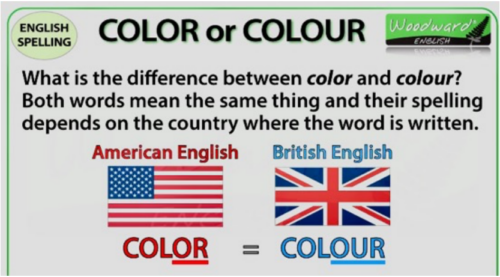
By Elizabeth Dunlop Richter
Do you have any words that haunt you? Have you ever discovered you were mispronouncing or misusing or misspelling a word, sometimes for years…and can’t shake your embarrassment when you learned the truth? I have. Some of these discoveries are, thank heavens, private but others were only too public. They all burned their way into my brain.
My first such experience was at age 12. I was in the annual spelling bee at the Worley Elementary School in Canton, Ohio. I thought I was a very good speller…always did well on spelling tests. I wasn’t one to prep for spelling tests… I just knew. Until I didn’t. The word was “restaurant.” Perhaps at that tender age I hadn’t eaten out enough; whatever the reason, I blew it, spelling it “resturant.” It seemed phonetically correct, but that was not good enough. I never see the word again without noting the “a” I neglected to say. And I never hear the word “spelling bee” without remembering my shame.

Ignorance on my part led to my next most embarrassing moment in college. Being from the Midwest, I felt less sophisticated than many of my classmates who grew up in New York City. I was beginning to appreciate fine dining but had little experience with restaurant menus or French cuisine. Hoping to impress a particularly elegant girl from the Big Apple, I rather smugly mentioned how much I liked “coq de vin.” With cool distain, she looked askance at me, and said condescendingly, “it’s coq au vin.” Mon Dieu! I don’t think I ever spoke to her again; or perhaps she never spoke to me again!

I can’t say my next experience was completely my fault. I grew up in the United States. However, when you’re typing scripts for BBC announcers, that’s no excuse. My first year out of college I was on an exchange program with the BBC European English Service in London. As you no doubt know, those Brits don’t spell things exactly the way we do! Even though I was copying someone else’s words and typing them into a script to be mimeographed (that really dates me!), I subconsciously used American spellings without thinking. The announcers appreciated a distinction I did not yet know. The word labor should have been labour. Color should have been colour. And there are many more examples. I was endlessly teased for my first few weeks until I got the message about when to add the “u”. Lesson earned. Check the British spelling.

It’s the errors one makes as a supposedly educated and experienced adult that are worse. I had never for some reason focused on the word spelled “ensure.” I always thought “insure” meant both having an insurance policy and to make certain. That turned out to be incorrect. You insure your home against fire, but you ensure that you have fire alarms in your home. Luckily, when I used the wrong word in a proposal for a client, my work colleague caught the error and gave me a lesson in spelling/meaning that I never forgot.

More painful still are the mistakes that make it to the client. I was having difficulty with a very demanding client because she didn’t understand certain technical aspects of building a web site. In a dra. copy of a document she requested, I used “compliment” instead of “complement.” I was suggesting an item said something nice about another item instead of suggesting that two items worked well together. The client was furious, and for a variety of reasons we eventually parted ways. Ouch. These are lessons you should have learned already, and now you never forget.

Fortunately, these are the very few words that continue to trigger intellectual pain. Having survived years of “word haunting,” however, I now find I’m much less tolerant of other people’s mistakes. Among the most irritating are those in TV commercials that one has to endure more than once!
I’ve now heard the Fiber and Spice commercial at least three times that explains why you should take the supplement with 12 ingredients. The announcer proudly lists them with cinnamon, cloves and turmeric among them. Except she says tumeric, losing the “r,” as virtually everyone does. Listen for it. It’s a popular spice these days, for health as well as flavor, so it’s hard to miss. This was one of my more recent private revelations when I heard a TV chef stressing the correct pronunciation. Now I can’t NOT hear it.

And of course, there are the common grammar rules that when broken feel to me like a fingernail scraping a blackboard: “Give it to him and I;” “She and me went shopping;” “Lacking a green thumb, the plant on my desk died.” My mental grammar policeman is the late Miss Georgia Shrigley, my eighth-grade English teacher who taught us to diagram sentences. There were no dangling participles in her class!
Often modern technology can help. Microso. Word tries to correct indirect sentences, bad grammar, and missing commas. But it flagged only one of the three errors I purposely inserted in the previous paragraph. One must not forget the Mother-of-Them-All, Spell Check (and the many similar programs). Most incorrect spellings are found but it would not have caught my usage issues with “compliment” and “complement” or “insure” and “ensure.” There is, of course, always the risk of its substituting an incorrect word in the attempt to fix a misspelling. We’ve all been there. Will Artificial Intelligence be any better? Only if Miss Shrigley’s eight grade curriculum is in A.I.’s foundation data base. Yet, language is not static, and even Miss Shrigley’s lessons may not hold up.
We’re faced with the reality of changing linguistic standards. Few cringe anymore when a sentence ends with a preposition. Splitting an infinitive is also tolerated, even in some grammar books preferred. Just what is “correct” English is continually debated, and new words are added to the dictionary every year. Pronunciation shifts with the influence of foreign language, media, advertising, and geography. There is often more than one “correct” spelling for a word. What is one to do? I am no longer adding words that haunt. I look up words I don’t know or of which I am unsure [should I have written “unsure of” ???]. But I also try to be more tolerant and try to ignore words with ambiguous appropriateness.
Does that mean no one is haunted by words anymore? I doubt it. While ghosts in the attic can be dismissed as fiction, one’s self-inflicted ghosts are harder to exorcize.







